

IT’S ALL OUT OF MY ARMS: An Activated Honoring
Artists featured in the ICA exhibition Dear Mazie,—Lukaza Branfman-Verissimo and the collective known as The Black School (operated by Joseph Cuillier and Shani Peters)—invite the writers Alexis De Veaux and Ayana Zaire Cotton to facilitate a collaborative altar-building workshop and collective reading.
Members of the public are invited to contribute to the altar with objects of significance that represent liberation, future making, and resistance. Please bring the item with you to the performance— No candles, incense, glitter, or open flames please—you will leave the evening with it in hand.
Artist Description:
“IT’S ALL OUT OF MY ARMS, OUR COLLECTIVE MOUTH IS SPEAKING” holds visionary Black queer legacies within our mouths, woven into our relationship to our collective liberation. It honors the builders, crafters, sculptors, poets, educators, activists, and web keepers of our futurity, bringing together the practices and language of Amaza Lee Meredith, Lukaza Branfman-Verissimo, Ayana Zaire Cotton, Alexis De Veaux, and Joseph Cuillier and Shani Peters of The Black School, into a spell and ceremony to build with.
The title reference, “it is all out of my arms,” is drawn from a poem by fellow Black queer architect, poet, activist, and educator June Jordan, and our collective mouth is speaking, giving our words power to craft a future full of collective worldbuilding. We wrap our mouths, homes, lovers, and sacred objects in words, letters, correspondence, spells, wishes, and demands, letting this language be the building blocks to craft our sacred survival spaces, in honor of and with Amaza.
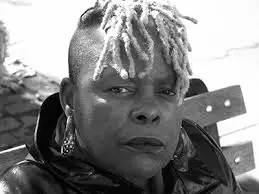
Alexis De Veaux
A voice for black feminism and LGBTQ equality, Alexis De Veaux is an internationally-published author, teacher and speaker whose work has won many literary awards and encompasses a range of social articles, poetry, fiction, and memoir. Throughout her career, she has been part of the black feminist movement and the Third World Gay and Lesbian Liberation Movement. Her work has been heavily influenced by these movements.
De Veaux has traveled extensively for her work as an artist and lecturer. She was a freelance writer and contributing editor for Essencemagazine (1979-1991) and traveled throughout Africa for the magazine.
De Veaux’s published works include books (Na-Ni, 1973; Spirits in the Street, 1973; Don’t Explain: A Song of Billie Holiday, 1980; Blue Heat: Poems and Drawings, 1985; An Enchanted Hair Tale, 1987; The Woolu Hat, 1995); Warrior Poet: A Biography of Audre Lorde(2004); Yabo(2014); and five short stories (“Remember Him A Outlaw,” 1972; “The Riddles of Egypt Brown-stone,” 1980, rpt. 1990; “All Shut Eyes Ain’t Closed, All Goodbyes Ain’t Gone,” 1983; “Adventures of the Dread Sisters,” 1991; and “The Ethical Vegetarian,” 1995). In addition, De Veaux has published dozens of articles and essays on various subjects, including “Jayne Cortez, Revolutionary Mouth on Paper” (Essence, 1978) and “SisterLove” (Afrekete: An Anthology of Black Lesbian Writing, 1995). One of her plays, “The Tapestry” (1986), is included in the anthology Nine Plays by Black Women Playwrights. Others have been produced Off-Broadway and in regional theaters across the country, and one play, “Circles” (1972), was produced at KCET-TV, California (1976).
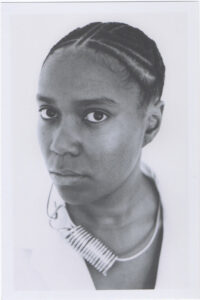
Ayana Zaire Cotton (she/they) is an anti-disciplinary artist and cultural worker from Prince George’s County, Maryland. They are currently based in Dawn, Virginia — tucked in between the ancestral lands of the Mattaponi and Youghtanund — answering the call to steward land that has been in their family for four generations. Braiding code, performance, and abstraction Ayana speculates and worldbuilds alongside science and technology. Sankofa is a word and symbol of the Akan Twi and Fante languages of Ghana which translates to, “go back and get”. Centering a sankofa sensibility, they build databases as vessels holding seed data and experiment with shuffling algorithms to spin non-linear narratives. Ayana calls this methodology “Cykofa Narration”, generating new worlds using the digital and social detritus of our existing world — resulting in a storytelling aesthetic that embodies circular time and troubles human authorship. Through engaging with language, technology, and ecology, Ayana is cultivating a practice of remembering and imagining alternative modes of being and interspecies belonging.
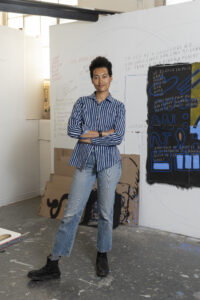
Lukaza Branfman-Verissimo is an artist, abolitionist, storyteller, cultural worker and person of multitudes.Through a practice based in the printed multiple, community-based work and installation building, they invite the viewer to recall and share their own lived narratives, offering power and weight to the creation of a larger dialogue around the telling of B.I.Q.T.P.O.C. (Black, Indigenous, Queer, Trans, People of color) stories. Branfman-Verissimo has had solo shows at September Gallery, Deli Gallery, Roll Up Projects, Center for Book Arts and Printed Matter Inc.Their work has been included in exhibitions and performances at MOCA Cleveland, Konsthall C, San Francisco Arts Commision, Leslie Lohman Museum of Art, Yerba Buena Center for the Arts, and L’Internationale Online, amongst others. They have been awarded residencies and fellowships at The University of New Mexico, Black Space Residency, Kala Art Center, Women’s Studio Workshop and ACRE Residency. Lukaza’s artist books and printed editions have been published by Endless Editions, Childish Books, Press Press and Printed Matter Inc. and is in the permanent collections at The Metropolitan Museum of Art, California College of the Arts Printmaking Archive, University of California Santa Cruz Library, New York University Special Collections and San Francisco Museum of Art Library. Branfman-Verissimo is represented by September Gallery.
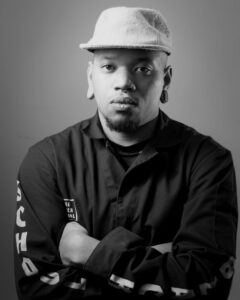
Joseph Cuillier III is an author and co-founder, with Shani Peters, of the Black School, an experimental art school teaching Black and people of color students and allies to become agents of change. Founded in 2016, its mission is to promote and extend the legacy of art in Black radical histories by providing innovative education alternatives centered in Black love. They have held over 100 workshops that address local community needs, serving over 400 students, collaborated with more than 40 professional artists, and partnered with over 50 organizations. They serve as educators and institution builders interested in engaging with public education and the arts for Dear Mazie,.

 10 AM-5 PM
10 AM-5 PM

 Area Map
Area Map 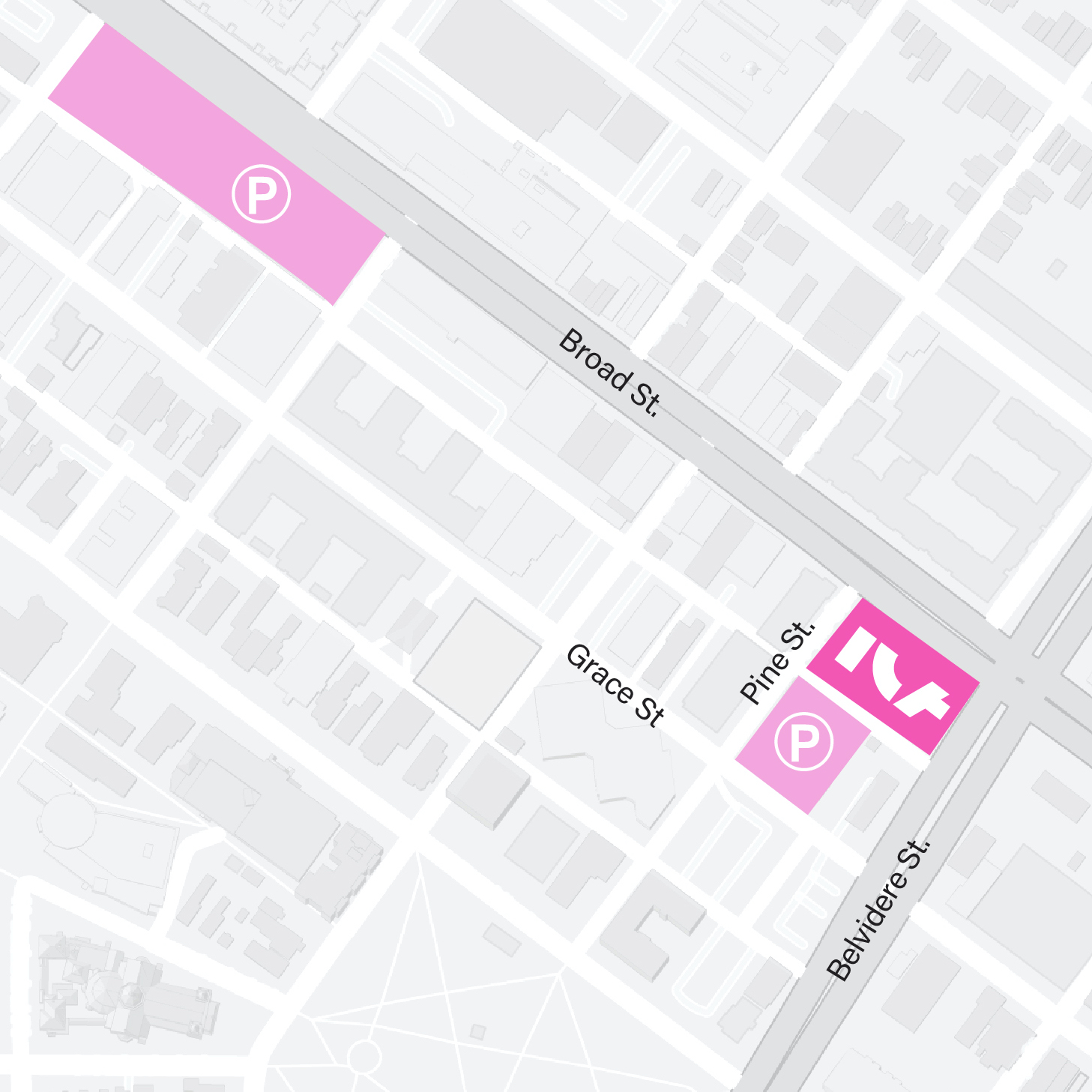 Parking
Parking